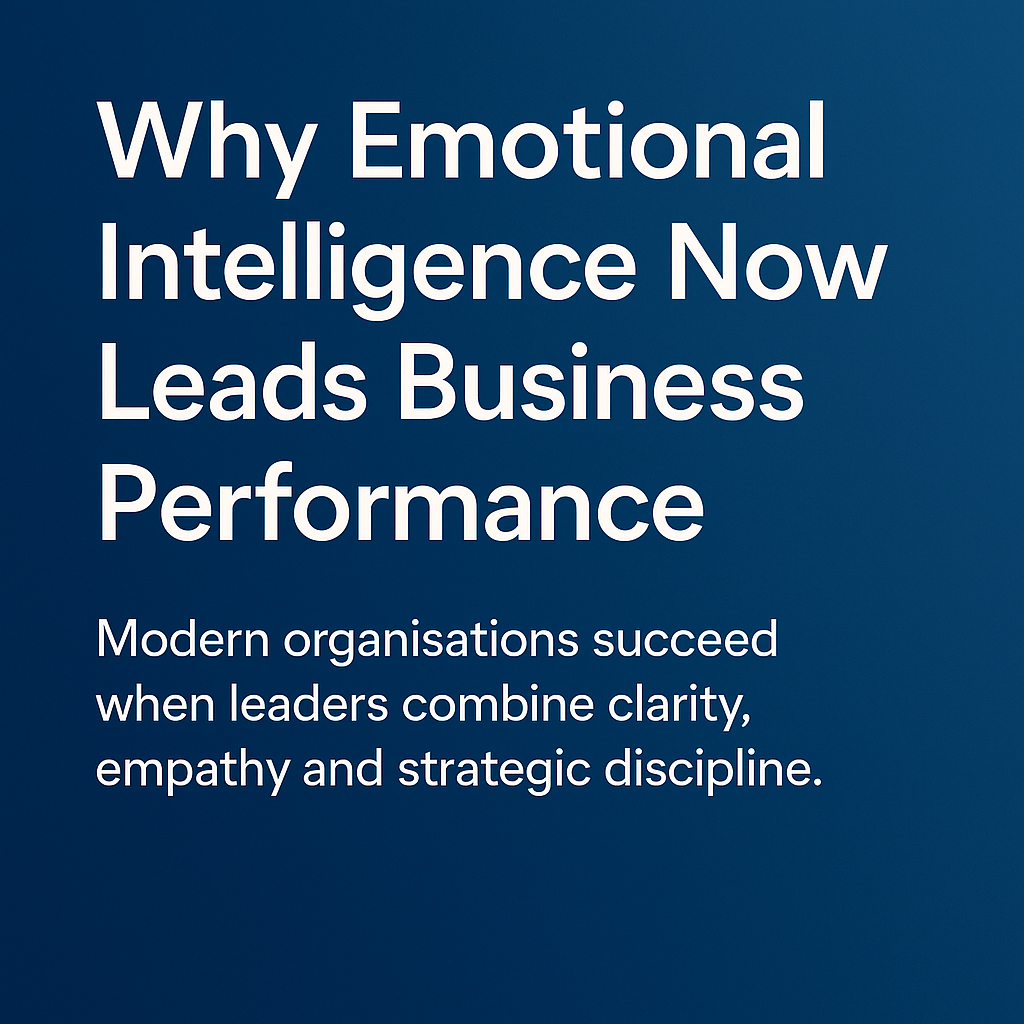
Leadership has entered a new era. The accelerated pace of change, increasingly diverse workforces and the rise of hybrid work models have reshaped what organisations expect from their leaders. Technical mastery and experience remain essential, yet they are no longer enough on their own. Today, the leaders who excel are those who demonstrate emotional intelligence, the capacity to understand themselves and others and to lead with clarity, empathy and discipline.
For modern managers, emotional intelligence is not a soft skill. It is a strategic differentiator that influences culture, performance and organisational resilience.
Recent global shifts have placed a renewed emphasis on human-centred leadership. Innovation, transformation and talent retention now depend as much on mindset and behaviour as on systems and strategy. Leaders who cultivate emotional intelligence are better positioned to guide teams through complexity, build trust and create environments where individuals and ideas thrive.
At its core, emotional intelligence enables leaders to:
Stay composed and effective under pressure
Communicate with transparency and influence
Navigate conflict constructively
Build strong relationships and cohesive teams
Translate organisational vision into collective action
These capabilities allow leaders to balance results with humanity, a balance that defines the most effective modern leadership.
Emotional intelligence rests on four interconnected capabilities:
Self Awareness
Understanding emotions, strengths, blind spots and personal motivations. This insight allows leaders to lead with authenticity and intention.
Self Management
Regulating emotions, maintaining calm in uncertainty and demonstrating discipline in decision making and behaviour.
Social Awareness
Recognising the needs, perspectives and emotional cues of others, and understanding organisational context and culture.
Relationship Management
Influencing with credibility, handling difficult conversations gracefully and fostering collaboration, commitment and trust.
Together, these elements create leaders who connect deeply, think clearly and act with confidence and maturity.
Organisations that invest in emotionally intelligent leadership consistently report:
Higher engagement and retention
Stronger relationships with clients and stakeholders
Greater innovation and team collaboration
Reduced conflict and burnout
Stronger performance and business sustainability
Emotional intelligence creates environments where people feel valued and supported and where performance is built on trust and aligned purpose.
Emotional intelligence is not innate. It is strengthened through intentional practice, real-time feedback and self-reflection. KC Academy’s leadership philosophy is grounded in building leaders who combine business acumen with human understanding.
Our approach emphasises:
Reflective leadership practice
Behavioural feedback and guided coaching
Real-world scenarios and practical application
Communication and influence skills
Resilience, adaptability and executive presence
By developing these capabilities, managers grow into leaders who inspire teams, guide organisations through change and uphold cultures that support excellence.
As organisations transform and expectations evolve, emotional intelligence will continue to shape the leaders who stand out. The future belongs to those who can unite strategic thinking with emotional maturity, decisive action with empathy and ambition with integrity. These leaders cultivate high-performing teams, build enduring trust and drive meaningful impact.
Emotional intelligence does not replace technical expertise. It elevates it. It is the human advantage that strengthens leadership in a complex world and positions organisations for lasting success.
Connect with our team to learn more about our customised learning and development solutions.
Stay up to date with our latest insights on leadership, strategy and other topics that are relevant to your business. No spam, great content.